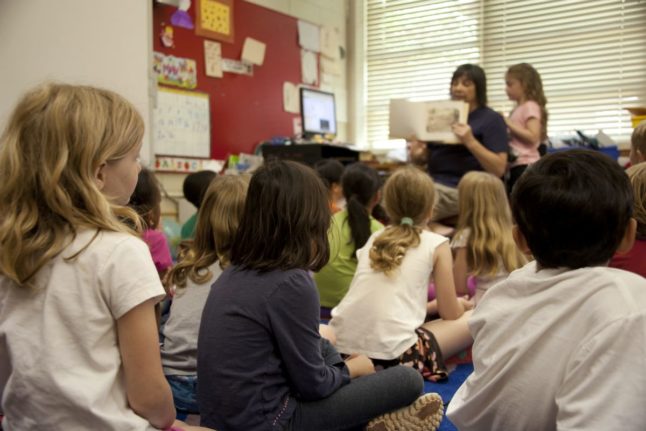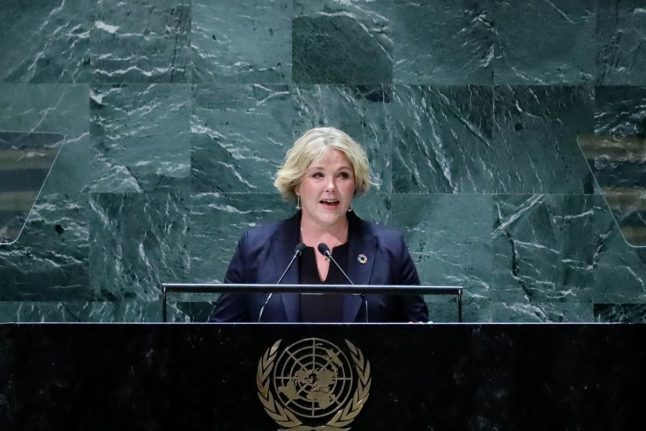Education Minister Kari Nessa Nordtun announced on Wednesday that the government would change the plan for the proposed cuts after the policy met heavy opposition after it was was unveiled in the state budget in October.
“Many parents and pupils are worried about their school, they don’t need to be,” Nordtun said.
Education leaders had previously told The Local that if the cuts went ahead schools would have to close due to the cuts, and teachers revealed in a survey that they feared for their jobs.
The government’s initial plan was to save 514 million kroner over five years by changing the subsidies it pays out to some private and international schools.
READ MORE: How Norway’s government plans to cut funding for private schools
The controversial proposal involved a cut to additional grants paid out to private schools that provide combined primary and secondary education. The grants have been paid out for each school level but the government wanted to reduce it to a single grant.
The extra subsidies have been paid out to compensate for the higher per-pupil running costs of private schools for combined primary and secondary education.
But on Wednesday the Norwegian government said it will still scrap the double payment for combined schools but said it would pay out additional grants elsewhere.
“I am concerned that the funding of private schools should be fair. It is right to remove the double subsidy for combined schools, and we want to implement that change,” Nordtun said to the Norwegian newspaper VG.
“At the same time, the dialogue with the schools has shown that the subsidies in other areas, such as school buildings, may be too low. Therefore, together with representatives of the private school organisations, we will now assess whether there is also a need for other adjustments,” she added.
Nevertheless, the cuts planned for the start of the 2024 academic year have now been temporarily shelved.
A working group would now assess how the subsidy changes should work, and schools have been invited to participate.
The results and suggestions will be assessed for the revised national budget, unveiled in the spring.
On Wednesday, protests against the policy were held by schools across Norway. Private schools in Norway which receive subsidies have their fees capped by the government.
This meant that had the planned changes gone ahead as initially proposed, many schools would have been unable to compensate for the lost subsidies.
Schools would have to have made cuts elsewhere to cover the shortfall.
Øystein Engås, headmaster at Møre primary and secondary school in Ålesund, told public broadcaster NRK that he wasn’t satisfied with the government’s response.
“The government here is inviting a process where they themselves have concluded in advance that they will continue with exactly the same cut they had planned,” he said.
READ ALSO: International school funding cuts will hurt Norway’s ability to attract foreign talent



 Please whitelist us to continue reading.
Please whitelist us to continue reading.
Member comments